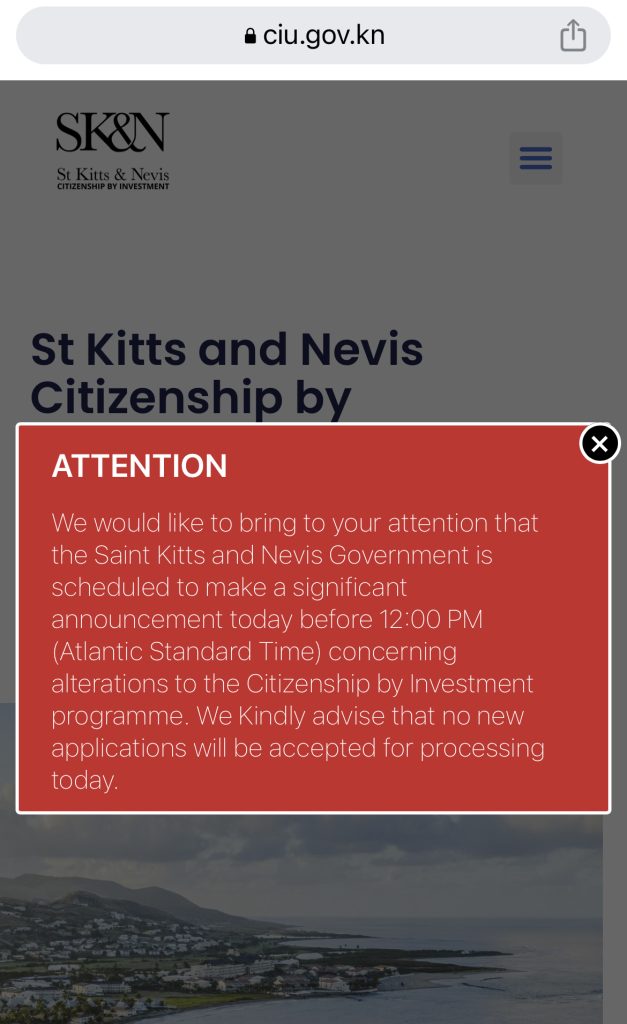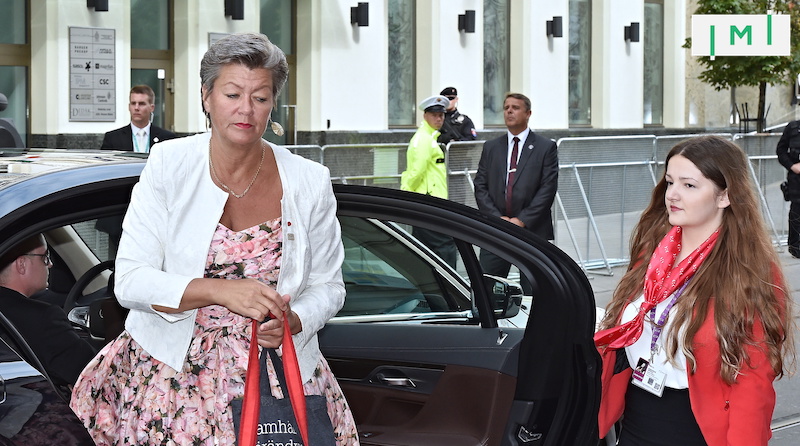EU Reportedly Raises 6 Demands for CIPs, Including $200,000 Min. Investment as Saint Kitts CIU Issues Cryptic Notice
According to an article in the Associates Times – which once again has not named its source but to which we tentatively ascribe credibility for its correctly predicting Dominica and Vanuatu’s loss of UK Schengen access last week – the European Commissioner for Home Affairs Ylva Johansson has issued six specific demands for reform of third-country citizenship by investment programs.
The source, who is purportedly an EU Commission official, tells the publication that Johansson will “spearhead an oversight committee to monitor the operations of these third country programs over a six-month period. This signifies a concrete commitment by the EU to enforce the philosophy they have touted for some time now.”
According to the article, the guidelines suggested include many of the same principles the Caribbean CBI countries already agreed to with the US Treasury earlier this year, such as:
- Introduce enhanced due diligence on all applicants. This is to be conducted by reputable international due diligence firms based in the EU, US, or UK.
- Implement mandatory interviews of all CBI applicants, in person or virtually. This practice, indicated the Commission source, would serve to add an additional layer of security to the CBI programs.
But the Commission also introduces some new demands:
- No sending of official citizenship documents or passports to a postbox. Instead, applicants should pick these documents up in person.
- Higher Minimum investment thresholds of US$200,000 for donation-based applications and US$400,000 for real estate. This requirement, said the source, would serve to ensure that the programs only attract “individuals with significant capacity to contribute economically” and to “underscore the seriousness of the commitment” that reinforces the notion that citizenship is “not merely a commodity for sale but a significant and meaningful alliance between the applicant and the host nation.”
- Stricter monitoring of the flow of funds, including stricter AML/KYC procedures and the transfer of qualifying funds directly from the applicant to the government and never through third parties.
- Total ban on promotional materials that highlight the benefits of visa-free travel to the EU.
The source tells Associates Times that the Commission considers the above measures “crucial to ensure the integrity of these programs and their compliance with international laws and standards”.
Oddly, the Commission (reportedly) also indicates some of the measures are there to enforce certain philosophical, hard-to-measure requirements.
For example, the prohibition on mailing official documents would “protect the sanctity” of citizenship. In other words, this stipulation requires that both the CBI countries themselves and the investors consider citizenship holy or sacred.
Moreover, the EU’s new stipulations seek to “shift the focus from simply purchasing a global mobility advantage to a more comprehensive commitment to the host country” and that “applicants are not solely driven by the convenience of global travel but also value and respect the responsibilities and privileges that come with the citizenship,” which would serve to “maintain the integrity of citizenship as a deep and meaningful connection to a nation.”
The Commission’s source did not specify which EU rules or legislation requires that citizenship be considered holy or “deep and meaningful,” nor why it was important to the Commission that applicants ascribe sentimental connections to host countries that, themselves, do not ask for the same.
So far, the only source for the above information is the unnamed EU Commission source cited by the Associates Times; The European Commission itself has yet to make any press releases to confirm this.
This morning, however, the Saint Kitts & Nevis CIU’s website displayed the following, possibly related message:

IMI is monitoring the situation and will revert as the story develops.


